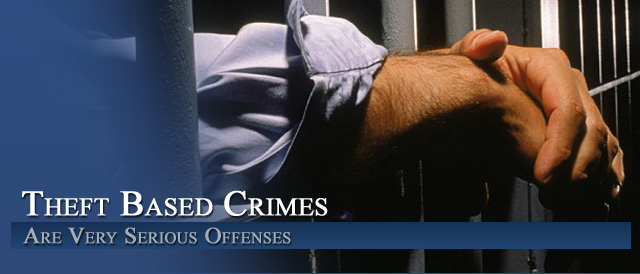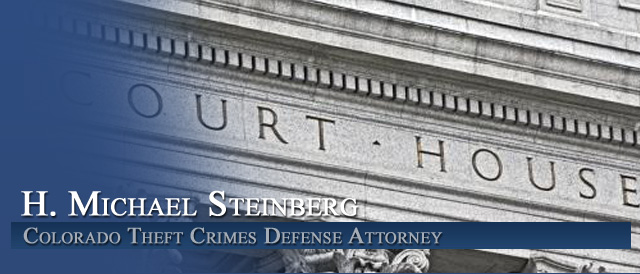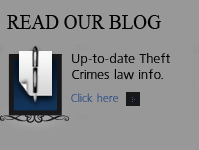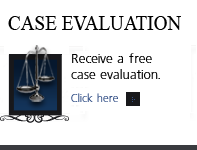




Understanding Colorado Criminal Fraud and Forgery Laws 18-5-102
By H. Michael Steinberg Colorado Criminal Defense Theft and Fraud Crimes Lawyer

__________________________________________ Understanding Colorado Criminal Fraud and Forgery Laws 18-5-102
Understanding Colorado Criminal Fraud and Forgery Laws 18-5-102 – Colorado Forgery cases under Section 18-5-102 are among the most complex crimes the State of Colorado must prosecute in the state’s felony criminal courtrooms.
The Colorado crime of Forgery must be understood in the factual context in which the crime is alleged. The crime can be committed several different ways and explaining each is difficult in a short article such as this – Here we go.
Three Basic Ways To Commit The Crime Of Forgery
While forgery – as a white collar crime – is considerably more complex than this article can address – it is fair to say that the Colorado crime of forgery is usually committed in one of three possible ways.
1. Counterfeiting or otherwise producing what appears to be a genuine legal instrument – which is – in fact – a phony document.
2. Falsely filling in one or more important parts of a genuine document (such as forging someone else’s signature on a check or a bill of sale).
3. Altering in a significant way one or more parts of a genuine document that has already been made out (such as changing the amount on a check.)
Importantly Forgery is a “specific intent crime” meaning the State must also prove beyond a reasonable doubt that the defendant acted with the specific intention of defrauding someone.
One way to understand the crime if it is charged in your case – is to look at the instructions of law given to a Colorado criminal jury at a trial on that charge.
For example – If “governmental instruments such as money or securities are forged – Colorado juries are given the following instruction of law:
FORGERY- (Governmental Instruments) – 18-5-102(1)(a), C.R.S.
The elements of the crime of forgery (governmental instruments) are:
1. That the defendant,
2. in the State of Colorado, at or about the date and place charged,
3. with intent,
4. to defraud,
5. falsely made, completed, altered, or uttered a written instrument,
6. which was, or which purported to be, or which was calculated to become or to represent if completed,
7. part of an issue of money, stamps, securities, or other valuable instruments issued by a government or government agency.
[8. and that the defendant’s conduct was not legally authorized by the affirmative defense[s] in Instruction[s] ___.]
The jury is then given definitions for Instruction for “falsely alter” – “falsely complete” – and “falsely make”);
If a person forges a check, or a promissory note, – note that the 7th element in the definition of the crime changes ..
FORGERY – (Legal Right, Interest, Obligation, or Status)
The elements of the crime of forgery (legal right, interest, obligation, or status) are:
1. That the defendant,
2. in the State of Colorado, at or about the date and place charged,
3. with intent,
4. to defraud,
5. falsely made, completed, altered, or uttered a written instrument,
6. which was, or which purported to be, or which was calculated to become or to represent if completed,
7. a deed, will, codicil, contract, assignment, commercial instrument, promissory note, check, or other instrument which did or might evidence, create, transfer, terminate, or otherwise affect a legal right, interest, obligation, or status.
[8. and that the defendant’s conduct was not legally authorized by the affirmative defense[s] in Instruction[s] ___.]
FORGERY – (Instruments Relating to a Corporation or Organization)
The elements of the crime of forgery (instruments relating to a corporation or organization) are:
1. That the defendant,
2. in the State of Colorado, at or about the date and place charged,
3. with intent,
4. to defraud,
5. falsely made, completed, altered, or uttered a written instrument,
6. which was, or which purported to be, or which was calculated to become or to represent if completed,
7. part of an issue of stock, bonds, or other instruments representing interests in or claims against a corporate or other organization or its property.
[8. and that the defendant’s conduct was not legally authorized by the affirmative defense[s] in Instruction[s] ___.]
The Key Definitions of Falsely Made, Completed, Altered, or Uttered a Written Instrument
Nearly all of the forms of forgery require an understanding of important terms that are used to define the crimes. Those terms are falsely made, completed, altered, or uttered a written instrument – are NOT self explanatory and require definitions.
Here are some example of how these terms in some of the kinds of the crimes of forgery:
Falsely Alter (Forgery and Impersonation Offenses)
To “falsely alter” a written instrument means to change a written instrument without the authority of anyone entitled to grant such authority, whether it be in complete or incomplete form, by means of erasure, obliteration, deletion, insertion of new matter, transposition of matter, or any other means, so that such instrument in its thus altered form falsely appears or purports to be in all respects an authentic creation of or fully authorized by its ostensible maker.
Falsely Make (Forgery)
To “falsely make” a written instrument means to make or draw a written instrument, whether complete or incomplete, which purports to be an authentic creation of its ostensible maker, but which is not, either because the ostensible maker is fictitious or because, if real, he did not authorize the making or the drawing thereof.
Falsely Complete – (Forgery and Impersonation Offenses)
To “falsely complete” a written instrument means to transform an incomplete written instrument into a complete one by adding or inserting, or changing matter without the authority of anyone entitled to grant that authority, so that the complete written instrument falsely appears or purports to be in all respects an authentic creation of or fully authorized by its ostensible maker; or to transform an incomplete written instrument into a complete one by adding or inserting materially false information or adding or inserting a materially false statement.
A materially false statement is a false assertion that affects the action, conduct, or decision of the person who receives or is intended to receive the asserted information in a manner that directly or indirectly benefits the person making the assertion.
To “Utter”
“Utter” means to transfer, pass, or deliver, or attempt to cause to be transferred, passed, or delivered, to another person any written instrument, article, or thing.
The Requirement Of A The Highest Mental State – Intent To Defraud
Proving forgery in a court of law can be tough. The crime is most often proven by the circumstances surrounding the act of forging a specific instrument. But the crime requires the prosecutor “climb into the head” of the accused. For that reason – the surrounding facts of the crime, in the absence of incriminating statements made by the accused, are critically important to success of proving the crime.
The intent to defraud – specifically, the state of mind necessary to prove all the forms of Forgery, necessarily involves the intent to “defraud” people. The accused must intend to have his or her victims believe that something false is actually genuine. If the accused creates a document with this requisite intent, the crime is completed.
Here Are Some Thoughts That May Help You Understand The Nature Of Forgery – Colorado Forgery – C.R.S. 18-5-102 – Criminal Intent And Innocent Parties.
The document or writing involved in the commission of the crime of Forgery must be “legally significant” as somehow affecting another person’s right to something.
A specific and targeted victim or victims, or evidence that the accused intended to defraud a particular person is NOT an essential element of the crime of forgery. Also actual deception of any specific individual or evidence that someone actually relied on the forged instrument, or that the forged document was stolen, are all NOT required to prove the crime of Colorado Forgery (C.R.S. 18-5-102)
The accused need not profit from the forgery. Actual prejudice or injury to any specific individual also need NOT not be proven at the trial.
Someone committing forgery can use an innocent third party to commit the crime of forgery.
The forger can actually cause another (who is entirely innocent) to assist in the commission of the crime. That innocent third party cannot be prosecuted for “aiding and abetting” the crime of forgery. Therefore if a person makes or alters an instrument in good faith, there can be no crime of forgery.
Some Twists To The Colorado Crime of Forgery – C.R.S. 18-5-102
Wile a person cannot commit forgery by signing his or her own name to an instrument, (since the signer is both the actual and ostensible maker of that instrument) – a person who signs and then executes the instrument it in his or her own name, may still be found guilty of making a false instrument, IF it is false in any material part and is actually calculated to fool another person into believing the instrument is genuine.
Another example to help you understand the crime of forgery is this example: a person may be guilty of forgery if they fraudulently sign their own name that is identical to the name of a person who should have signed their name and there is an intent is to have the instrument received as that of the other person. It is all about the mind of the alleged forger.
Along those same lines – the crime of forgery cannot occur when authority is given to sign the name of another to writing. If the accused has signed the name of a deceased person to an instrument with the intent to defraud – the crime of forgery is established.
Understanding Defenses To The Colorado Crime Of Forgery C.R.S. 18-5-102
One of the most common, and therefore key defenses, to the crime of forgery is that the accused acted in good faith and believed that he had the authority to produce the instrument in question.
Another is a defense based on evidence that the name of the person -whose name is forged and is purported to be the victim of the crime – actually extended permission to the alleged forger as when a parent permits their family member to sign their name however badly.
It is important to quickly note that the accused must actually have the authority to make or sign the document – the defense does not apply if the accused did not actually have the authority, and there is evidence that the defendant knew that he did not have such authority.
The Role Of Guilty Knowledge And Mind Altering Drugs And Alcohol In Forgery Cases
Because “guilty knowledge” is an essential element of the crime of forgery. If it is shown that the accused was intoxicated or under the influence of drugs during the alleged commission of the crime, the requisite intent (also known as premeditation, or deliberation) in the commission of crime that fact may be used as a defense.
Intoxication is not usually a defense to a crime, but where the crime requires proof of specific intent it is in that class of crimes and offenses which depend upon a kind of “coolness and deliberation” the absence of that intentional state of mind – sometimes known generally as “guilty knowledge” voluntary intoxication may be a defense.
Individual Acts Of Forgery Can Constitute A Pattern Of Forgery
When a person commits several acts of forgery, each act constitutes a separate crime, even when they have not been committed in the course of a sequential transaction on the same date.
In Colorado – The Crime of Forgery Is A Class Five Felony – At The Lower Scale Of Colorado Felonies
The crime of Forgery, C.R.S. 18-5-102, is a Class 5 felony and is therefore punishable by imprisonment in the Colorado Department of Corrections from between one year to 18 months. If the Judge finds “exceptional circumstances” at sentencing, the Court can increase that prison sentence to three years. Other sentences can be a half way house – known as a Community Corrections sentence, a county jail sentence of up to 90 days as a condition of probation or a work release sentence up to two years as a condition of a probationary sentence.
Understanding Colorado Criminal Fraud and Forgery Laws 18-5-102
If you found any of the information I have provided on this web page article helpful please click my Plus+1 or the Share buttons below so that others may also find it.
Never stop fighting – never stop believing in yourself and your right to due process of law.
ABOUT THE AUTHOR: H. Michael Steinberg – Email The Author at [email protected] – A Denver Colorado Criminal Defense Lawyer – or call his office at 303-627-7777 during business hours – or call his cell if you cannot wait and need his immediate assistance – 720-220-2277. Attorney H. Michael Steinberg is passionate about criminal defense. His extensive knowledge and experience of Colorado Criminal Law gives him the edge you need to properly handle your case.
 You should be careful to make a responsible choice in selecting a Colorado Criminal Defense Lawyer – and we encourage you to “vet” our firm. Over the last 40 plus years – by focusing ONLY on Colorado criminal law – H. Michael has had the necessary time to commit to the task of constantly updating himself on nearly every area of criminal law, to include Colorado criminal law and procedure and trial and courtroom practice. H. Michael works hard to get his clients the best possible results in and out of the courtroom. He has written, and continues to write, extensively on Colorado criminal law and he hopes this article helps you in some small way -Understanding Colorado Criminal Fraud and Forgery Laws 18-5-102.
You should be careful to make a responsible choice in selecting a Colorado Criminal Defense Lawyer – and we encourage you to “vet” our firm. Over the last 40 plus years – by focusing ONLY on Colorado criminal law – H. Michael has had the necessary time to commit to the task of constantly updating himself on nearly every area of criminal law, to include Colorado criminal law and procedure and trial and courtroom practice. H. Michael works hard to get his clients the best possible results in and out of the courtroom. He has written, and continues to write, extensively on Colorado criminal law and he hopes this article helps you in some small way -Understanding Colorado Criminal Fraud and Forgery Laws 18-5-102.

Other Articles of Interest:
- Federal Theft – Forgery and Fraud Crimes
- Forgery 18-5-102
- Second Degree Forgery 18-5-104
- Criminal Possession Of Forgery Devices 18-5-706
- Criminal Possession Of Forgery Devices 18-5-109












